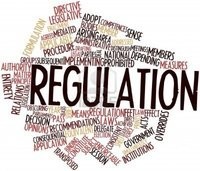Colombia and Brazil have introduced reforms aimed at improving efficiency and transparency in their health sectors, marking a significant step forward toward enhancing healthcare regulation and accelerating access to medical products and clinical trials.
Colombia’s streamlined processes
In March 2025, Colombia’s National Institute of Drug and Food Surveillance (INVIMA) unveiled a draft contingency plan featuring simplified processes for medical products to expedite market access and improved transparency. The plan introduces specialized working groups, or ‘cells’, tasked with assessingproduct risks, categorizing process complexity, and setting resolution timelines. Additionally, virtual hearings will enable direct communication between license holders and agency personnel, ensuring prompt clarification of regulatory queries.
These reforms apply to all pending processes as of 30 December 2024. INVIMA collaborated with the Colombian pharmaceutical trade group Afidro, emphasizing that patients will benefit from a more agile and modern regulatory system. INVIMA has actively promoted its industry-friendly mission through various platforms and regional seminars, reinforcing its commitment to supporting small, medium, and large companies while maintaining rigorous oversight.
Brazil’s clinical trial modernization
Earlier, on 27 February 2025, Brazil’s National Health Surveillance Agency (ANVISA) had introduced Resolution RDC 945/2024 and Normative Instruction IN 338/2024, revolutionizing clinical trial authorizationprocesses. The new regulation imposes a maximum 90-business-day limit for reviewing clinical trial petitions and permits trials to proceed if no response is received within this period—provided ethical approval is secured. ANVISA’s reliance on analyses from equivalent foreign regulatory authorities (AREEs) streamlines decision-making and reduces duplication, aligning Brazil with international Good Clinical Practices standards.
To support stakeholders, ANVISA has published detailed manuals covering clinical trial dossier submissions (Drug Clinical Development Dossier – DDCM and Specific Clinical Trial Dossier – DEEC) and adverse event reporting. These guidelines enhance transparency and minimize risks for trial participants.
A regional commitment
Both Colombia and Brazil’s reforms underscore a regional commitment to advancing healthcare regulation, ensuring timely access to medical products and clinical trials while upholding safety and transparency.
Efforts to harmonize biosimilar regulations in Latin America are also underway, with regulatory agencies collaborating and exchanging best practices to drive progress [1].
Related articles
New regulations in Brazil for the registration of biosimilars
Colombian guidelines for productos bioterapeuticos similares
Regulation of similar biotherapeutic products in Latin America
Reference
1. GaBI Online - Generics and Biosimilars Initiative. Challenges and progress in the registration of biosimilars in Latin America [www.gabionline.net]. Mol, Belgium: Pro Pharma Communications International; [cited 2025 Apr 22]. Available from: www.gabionline.net/biosimilars/general/challenges-and-progress-in-the-registration-of-biosimilars-in-latin-america
Permission granted to reproduce for personal and non-commercial use only. All other reproduction, copy or reprinting of all or part of any ‘Content’ found on this website is strictly prohibited without the prior consent of the publisher. Contact the publisher to obtain permission before redistributing.
Copyright – Unless otherwise stated all contents of this website are © 2025 Pro Pharma Communications International. All Rights Reserved.








 0
0











Post your comment